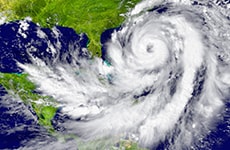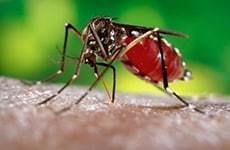Puerto Rico

- State Population: 3,221,789
- Local Health Departments: N/A
- Frequent Public Health Emergencies: Tropical Storms/Hurricanes, Flooding, Landslides/Mudslides
- Key Emergency Operations Center Activations: 2020: COVID-19 Pandemic
- CDC PHEP Funding:
FY 2022: $6,653,125
FY 2021: $6,613,160
FY 2020: $6,560,315 - Public Health Crisis Response Funding
Mpox 2023 funding: $436,493
COVID-19 2021 funding: $19,678,685
COVID-19 2020 funding: $7,884,152
- Epidemiologists: 4
- Laboratorians: 8
- Other: 54*
*Includes IT specialists, administrative staff, statisticians, and other positions
1 Career Epidemiology Field Officer
- Public Health Laboratory Testing
- Information Sharing
- Medical Countermeasure Dispensing
- Medical Material Management and Distribution
- Emergency Operations Coordination

In Puerto Rico, PHEP supports a CDC field scientist who works with local staff to improve surveillance, strengthen outbreak response, and conduct epidemiologic investigations. On September 20, 2017, Hurricane Maria made landfall in Puerto Rico as a strong Category 4 hurricane, causing unprecedented damage to structures, roads, electricity, water, and healthcare facilities. This left residents vulnerable to infectious disease outbreaks, made worse by lack of refrigerated storage for vaccines. The CDC field scientist, alongside local staff, inspected potential vaccination sites, assessed their power needs, and worked to make them operational. As a result, more than 25 additional vaccination sites were able to provide services, saving countless lives.

Puerto Rico’s Department of Health activated its Emergency Operations Center for 510 days in response to the island’s Zika outbreak. Twenty-five PHEP-trained staff managed and supported the response. PHEP funding also supported more than 95,000 blood sample tests and helped purchase insect repellent and educational materials for more than 30,000 people.